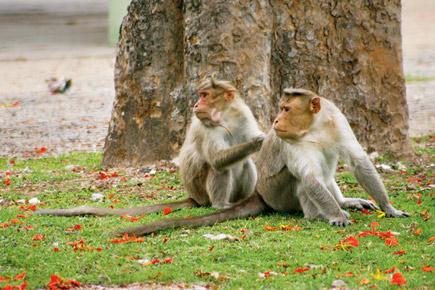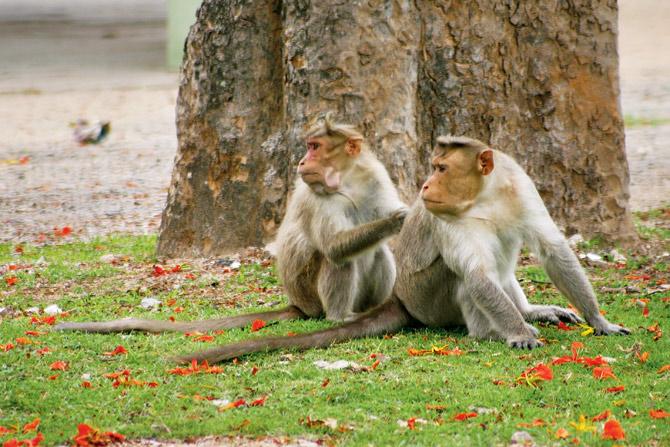The mild nip in the night and early morning temperatures is a pleasant change in Mumbai's sub-tropical climate

 The mild nip in the night and early morning temperatures is a pleasant change in Mumbai’s sub-tropical climate. The slanting rays made magical by the calls of resident crow pheasants and migratory drongos, give a poetic start to my day. Even the Vilayti Badam’s reddening leaves, which float down gently and carpet my building’s premises seem like a festive rangoli that nature has strewn just for me to enjoy. But ironically, not everyone is as excited about changes in our natural surroundings and take them for granted, until they face health issues in their old age.
The mild nip in the night and early morning temperatures is a pleasant change in Mumbai’s sub-tropical climate. The slanting rays made magical by the calls of resident crow pheasants and migratory drongos, give a poetic start to my day. Even the Vilayti Badam’s reddening leaves, which float down gently and carpet my building’s premises seem like a festive rangoli that nature has strewn just for me to enjoy. But ironically, not everyone is as excited about changes in our natural surroundings and take them for granted, until they face health issues in their old age.

A pair of Bonnet Macaque
ADVERTISEMENT
The tell-tale signs of the urban disconnect are unnatural fears of various creatures, including butterflies/moths, spiders, lizards, pets and an obvious level of discomfort in the outdoor environment. This urban disconnect is typically caused in individuals exposed to excess isolation, working long hours in boxed up, closed and artificially managed environments with unnatural lighting and air-conditioning, along with consumption of non-native foods and erratic travel or work hours. Unless such individuals make active attempts to reconnect with nature on a regular basis, they subconsciously revert to creating unnatural spaces around them, without potted plants or trees, with closed, grilled and non-ventilated households. And then, an innocuous visit by a squirrel, bat or a line of ants triggers panic attacks and is viewed as an invasion on their private space, an attack by the wild elements and at the worst, a matter to counter-attack these natural elements. I’m sure you must have met those overzealous housing colony secretaries or that uncle/aunty who heartlessly insists on hacking all trees to bare stumps, even when they know it contains a crow, egret or a kite’s nest.
This human-animal conflict and the related turf wars are increasing drastically with our first and second homes invading deeper into former natural landscapes such as hill tops, grasslands, wetlands, mangroves, coastlines and even forested regions bordering national parks and sanctuaries. On the face of it, everyone moves there to enjoy the scenery and freshness related with the green vistas. But nobody wants to acknowledge that when your house is built on a former lake, it may flood and fish and frogs may emerge. Or if your tower borders the Sanjay Gandhi National Park, then aggressive monkeys will come looking for bananas on your dining table. If you dump garbage outside your building and it attracts rats, dogs and crows, then kites, snakes, jackals or leopards are definitely going to follow.
Your Lakshman-Rekhas, Hits, Goodknights, Baygon Sprays, Odomos and other insect repellents will have efficacy on a very limited variety of creatures. The thousands of moths that breed in the mangroves spreading eggs and itchy caterpillars on the vegetation are an expected outcome, but this time on your furniture, cars, sliding windows and even potted plants. When you destroy natural streams and pools and create artificial swimming pools, then the swallows, bats and other forest creatures that eat a high protein diet will reclaim their stake or ownership over your swimming pool. The dengue mosquitoes will move closer home and breed right at your door step.
There are some pluses to this too, which a few ecologically connected souls will appreciate. Behind the prey come their predators too, such as thousands of dragonflies that you must be seeing off late or the barn owls in your towers as well as the occasional python that may slither into your manicured lawns. It is up to us to understand how to share these common lands with their original residents.
Thankfully, most people are not so far gone in their hatred for our wild neighbours. But not all are ignorant. A growing population takes care of stray cats and dogs, strives to free the roots of trees from concrete, and calls snake and animal rescue groups to capture even harmful Russell’s vipers or habituated bonnet monkeys, without actually engaging in unsavoury turf wars.
Write in to Anand Pendharkar at sproutsonline@gmail.com
 Subscribe today by clicking the link and stay updated with the latest news!" Click here!
Subscribe today by clicking the link and stay updated with the latest news!" Click here!







